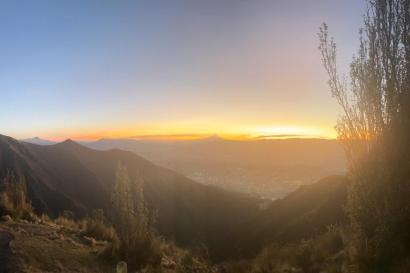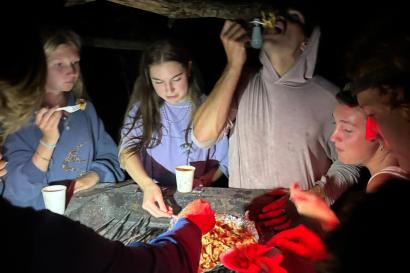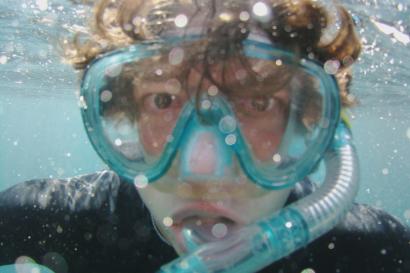The most scared I’ve ever been was last September, about a month into my semester abroad experience. I was fifteen thousand feet above sea level—five thousand up from Quito— on a mountain called El Corazón, walking on a narrow ridge with sheer drops on either side and wearing the wrong shoes. I hadn’t quite realized how different running shoes were from hiking boots, and I was rapidly realizing that my ignorance could have real consequences. Still, sliding my way up and down (the relatively safe, incredibly terrifying path of) that mountain was an incredible experience. I learned a lot, albeit mostly about the level of traction necessary in mountain-climbing footwear, and really enjoyed myself once I got over the intense thigh pain and mortal terror. In short, it was a near-perfect microcosm of my time abroad.
Studying in Ecuador, like climbing El Corazón, was something that I thought would be easy. On paper, I’d done similar things before: I spent a weekend last summer hiking with my sisters in Shenandoah National Park (in the same shoes I then wore to the mountain), just like I’d spent some time out of the country with my family. It turned out that, just as a few miles of waterfall trails aren’t the same as a mountain in the Andes, spending four months living outside the country with a family that isn’t my own was a completely different animal than anything I’d experienced prior to August.
Chief among the challenges of my study abroad experience was, intuitively enough, the language barrier. I had somehow managed to downplay this in my mind, assuming that despite my limited Spanish I’d be able to make do without any major difficulties. In what would become a theme over the semester, my expectations were both right and wrong: I did make do, but it was definitely not easy. I quickly mastered the art of conveying meaning physically, through pointing and other crude sign languages which served as a stopgap solution as my vocabulary and other Spanish language skills rapidly developed to the point of enabling me to communicate.
The other main challenge was actually living with a host family. I’ve spoken about this in other posts, but the key element is that I figured it’d be exactly the same as living with my real family and it just wasn’t. For better or worse, I learned to live with strangers, and to develop new networks as new events—both good and bad—unfolded in my life.
When I finally finished descending El Corazón, I was exhausted. At the same time, though, I felt triumphant: I’d done something new, something that I’d never done before, and I’d stretched new muscles and learned new skills to do it. I now feel the same way about having studied abroad. I’m incredibly proud of everything I did during my time in Ecuador, from writing a ten page paper in Spanish about queer theory to, yes, successfully reaching the summit of El Corazón, and even though it’s not the experience I’d expected at the start, it’s one I’m unambiguously glad I lived.

Louis Herman
Hi! I'm a current junior at the University of Rochester studying the history of early modern globalization, with a specific focus on links between Asia and Latin America. When I'm not busy writing papers, you can probably find me lying down on the beach, soaking in the sunlight, and reading sci-fi.







